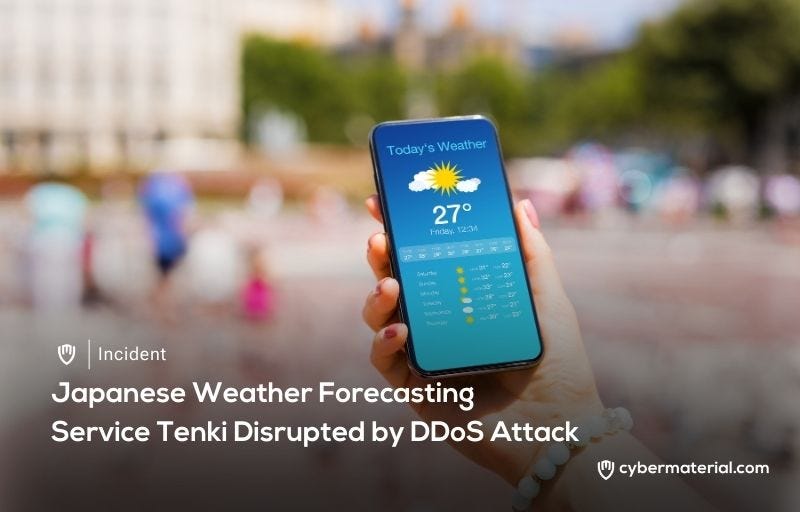
On January 5, 2025, at approximately 6:54 AM EST, Japan’s popular weather forecasting platform, tenki.jp, suffered a major disruption due to a Distributed Denial-of-Service (DDoS) attack. This cybera…

On January 5, 2025, at approximately 6:54 AM EST, Japan’s popular weather forecasting platform, tenki.jp, suffered a major disruption due to a Distributed Denial-of-Service (DDoS) attack. This cybera…